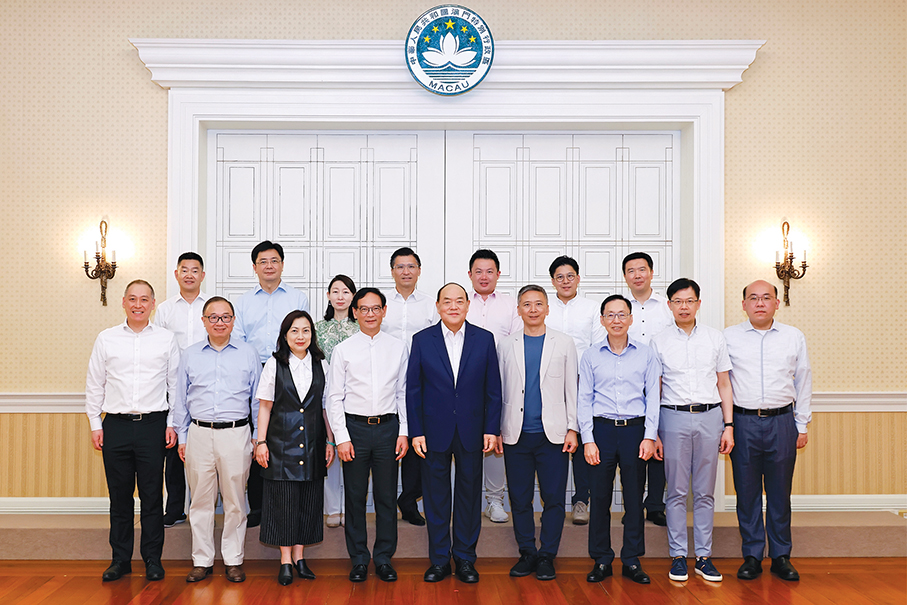Commentary by Lee Tak Lim
The concessions of Macau’s six gaming operators will expire next June. With only a few months left, it is more than likely that the concessions will be extended to give the government more time to kick off the bidding for the next-decade’s casino operators.
The government launched the consultation on September 15 - the revision of No. 16/2001 Gaming Law that regulates the six casino operators.
When the consultation was announced by the government in September, Macau’s Hong Kong-listed casino stocks lost their market value by as much as a quarter to a third in two days. What spooked the market?
Three policy choices for consideration by the public probably explain the jittery market reaction. Market movement is driven by information. The consultation portrays a heavy-handed approach in the regulation of the gambling industry.
The government made a candid confession. The 16/2001 Gaming Law is deficient from the perspective of regulatory oversight. How can the deficiency be corrected?
The government proposes three measures to address the regulatory deficiency. First, appoint an official representative to each of the concessionaires and, second, heighten the scrutiny of the operators’ shareholders and employees holding senior positions.
The third relates to junket or VIP room operators. Junket operators are intermediaries or gaming promoters who entice gamblers to the properties of the casino operators. In return, they receive a rebate on the money their solicited customers put on the gambling tables.
The government wants to raise their capital requirement and impose stricter operational standards to, hopefully, weed out their shady activities. This implies fewer but financially stronger and more compliant junket operators.
Prior to 2019, junkets’ gross revenue accounted for more than half of casino operators’ total gross revenue. To put this into context, it was a staggering 166 billion patacas in 2018. Casino operators’ financial results would be severely hit if junkets’ customers gamble less.
The imposition of stricter regulations on casino operators, especially the proposed shoe-in of an official representative, should initially unnerve the market. I, however, do not see any impact, at least not a big impact, on the operators’ business prospects. Merits aside, the intervention is just to ensure their regulatory compliance.
It should sound an alarm if junket operators’ solicited gross revenue is significantly curtailed because of the overhaul of their operations. The proposed overhaul, however, only confirms the obvious.
Reuters’ Hong Kong-based correspondent Farah Master described the situation in her article, “Macau VIP casino industry out of luck as China cracks down on capital flows” dated August 18, 2020, when the central government launched its crackdown on the illegal outflow of capital from the Chinese mainland. Junkets’ solicited customers are overwhelmingly mainland Chinese.
With capital control in mainland China still solidly in place and mainland Chinese only allowed to carry a limited amount of cash when travelling, it is unfathomable that hundreds of billions of yuan were lost on the gambling tables. Would an abnormality of such an extreme degree persist in more than a decade without any intervention?
The first and second proposed measures aimed at casino operators are no more than a bureaucratic intervention typical of any government. Given the tax revenue relied on by the government to fund its fiscal budget, I don’t think the government is stupid enough to hurt its coffers by unnecessarily interfering in their proper business. After all, we don’t know yet what role the government wants its representatives to play.
Measures to rein in the junkets are long overdue. Macau is a special administration region of China and its continued inaction would risk becoming the destination of illegal funds flowing from the Chinese mainland. The government raising gaming operators’ capital requirement and junkets’ regulatory requirements will restore confidence in this out-of-control niche. The golden years of the junkets will become a thing of the past.
The free fall of these six gambling stocks in the wake of the public consultation can hardly be attributed to the above-mentioned three proposed measures. The placement of a government representative should be operation related. The junket-related measures could be sensibly argued as the cause given their potential impact to the casino operators. But further analyses do not support such a conclusion. The central government’s earlier crackdown should have already been priced in their stock performance.
I would argue otherwise. The market might have misinterpreted what Secretary for Economy and Finance Lei Wai Nong said at the start of the consultation process about the quantity of concessions.
The six casino operators comprise three concessions and three sub-concessions. The three concessions were awarded to Galaxy, SJM and Wynn which, with government approval, subsequently awarded sub-concessions to Sands, MGM and Melco.
Lei said that the three sub-concessions would have to be cancelled, but stopped short of revealing more. The consultation paper positions the quantity of concessions as the first point to be subject to public consultation. It details how the total number of gambling outlets, tables and slot machines has changed so far. With no mention of the number of concessions as a goal, it stresses that quality matters more than quantity.
The ambivalent future of the sub-concessions and the quality-quantity rhetoric has sparked fancy speculations. The fear has further been fuelled by the comments of a few Hong Kong analysts.
One analyst warned that US-based casino operators might not be given a new concession due to the current confrontation between the US and China. Another added that US-based operators would likely have special conditions attached to their concessions not applicable to other operators. These are conspiracy theories and should not deserve a place in a decent finance publication.
It is plausible and, indeed, quite necessary to cut down the number of casino outlets. But the same could not be said of the concessions – six at present.
Does the government intend to award fewer concessions? The consultation paper states that, in 2020, the gambling industry employed 82,043 people, representing 17.23 percent of the labour force. How would the government deal with the local employees facing unemployment if it, for whatever reasons, decides to hand out fewer than six concessions? The result would be less tax revenue and higher unemployment.
So don’t bet on a number of concessions fewer than six.








